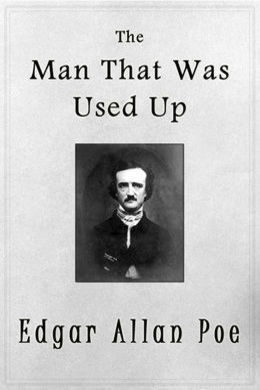
The Man That Was Used Up
A Tale of the Late Bugaboo and Kickapoo Campaign
by Edgar Allan Poe
subjects: Satirical Fiction & Parodies, Short Stories
-
EPUB 76 KB
-
Kindle 94 KB
Description
The story follows an unnamed narrator who seeks out the famous war hero John A. B. C. Smith. He becomes suspicious that Smith has some deep secret when others refuse to describe him, instead remarking only on the latest advancements in technology. When he finally meets Smith, the man must first be assembled piece by piece. It is likely that in this satire Poe is actually referring to General Winfield Scott, veteran of the War of 1812, the Mexican–American War, and the American Civil War. Additionally, Poe is questioning the strong male identity as well as questioning where humanity falls as machines become more advanced. (source: Wikipedia)
14 pages with a reading time of ~15 minutes (3580 words), and first published in 1839. This DRM-Free edition published by epubBooks, 2011.
Community Reviews
There are currently no other reviews for this book.
Excerpt
I cannot just now remember when or where I first made the acquaintance of that truly fine-looking fellow, Brevet Brigadier General John A. B. C. Smith. Some one did introduce me to the gentleman, I am sure–at some public meeting, I know very well–held about something of great importance, no doubt–at some place or other, I feel convinced,–whose name I have unaccountably forgotten. The truth is–that the introduction was attended, upon my part, with a degree of anxious embarrassment which operated to prevent any definite impressions of either time or place. I am constitutionally nervous–this, with me, is a family failing, and I can’t help it. In especial, the slightest appearance of mystery–of any point I cannot exactly comprehend–puts me at once into a pitiable state of agitation. There was something, as it were, remarkable–yes, remarkable, although this is but a feeble term to express my full meaning–about the entire individuality of the personage in question. He was, perhaps, six feet in height, and of a presence singularly commanding. There was an air distingué pervading the whole man, which spoke of high breeding, and hinted at high birth. Upon this topic–the topic of Smith’s personal appearance–I have a kind of melancholy satisfaction in being minute. His head of hair would have done honor to a Brutus;–nothing could be more richly flowing, or possess a brighter gloss. It was of a jetty black;–which was also the color, or more properly the no color of his unimaginable whiskers. You perceive I cannot speak of these latter without enthusiasm; it is not too much to say that they were the handsomest pair of whiskers under the sun. At all events, they encircled, and at times partially overshadowed, a mouth utterly unequalled. Here were the most entirely even, and the most brilliantly white of all conceivable teeth. From between them, upon every proper occasion, issued a voice of surpassing clearness, melody, and strength. In the matter of eyes, also, my acquaintance was pre-eminently endowed. Either one of such a pair was worth a couple of the ordinary ocular organs. They were of a deep hazel, exceedingly large and lustrous; and there was perceptible about them, ever and anon, just that amount of interesting obliquity which gives pregnancy to expression. The bust of the General was unquestionably the finest bust I ever saw. For your life you could not have found a fault with its wonderful proportion. This rare peculiarity set off to great advantage a pair of shoulders which would have called up a blush of conscious inferiority into the countenance of the marble Apollo. I have a passion for fine shoulders, and may say that I never beheld them in perfection before. The arms altogether were admirably modelled. Nor were the lower limbs less superb. These were, indeed, the ne plus ultra of good legs. Every connoisseur in such matters admitted the legs to be good. There was neither too much flesh, nor too little,–neither rudeness nor fragility. I could not imagine a more graceful curve than that of the os femoris, and there was just that due gentle prominence in the rear of the fibula which goes to the conformation of a properly proportioned calf. I wish to God my young and talented friend Chiponchipino, the sculptor, had but seen the legs of Brevet Brigadier General John A. B. C. Smith. But although men so absolutely fine-looking are neither as plenty as reasons or blackberries, still I could not bring myself to believe that the remarkable something to which I alluded just now,–that the odd air of je ne sais quoi which hung about my new acquaintance,–lay altogether, or indeed at all, in the supreme excellence of his bodily endowments. Perhaps it might be traced to the manner;–yet here again I could not pretend to be positive. There was a primness, not to say stiffness, in his carriage–a degree of measured, and, if I may so express it, of rectangular precision, attending his every movement, which, observed in a more diminutive figure, would have had the least little savor in the world, of affectation, pomposity or constraint, but which noticed in a gentleman of his undoubted dimensions, was readily placed to the account of reserve, hauteur–of a commendable sense, in short, of what is due to the dignity of colossal proportion.
